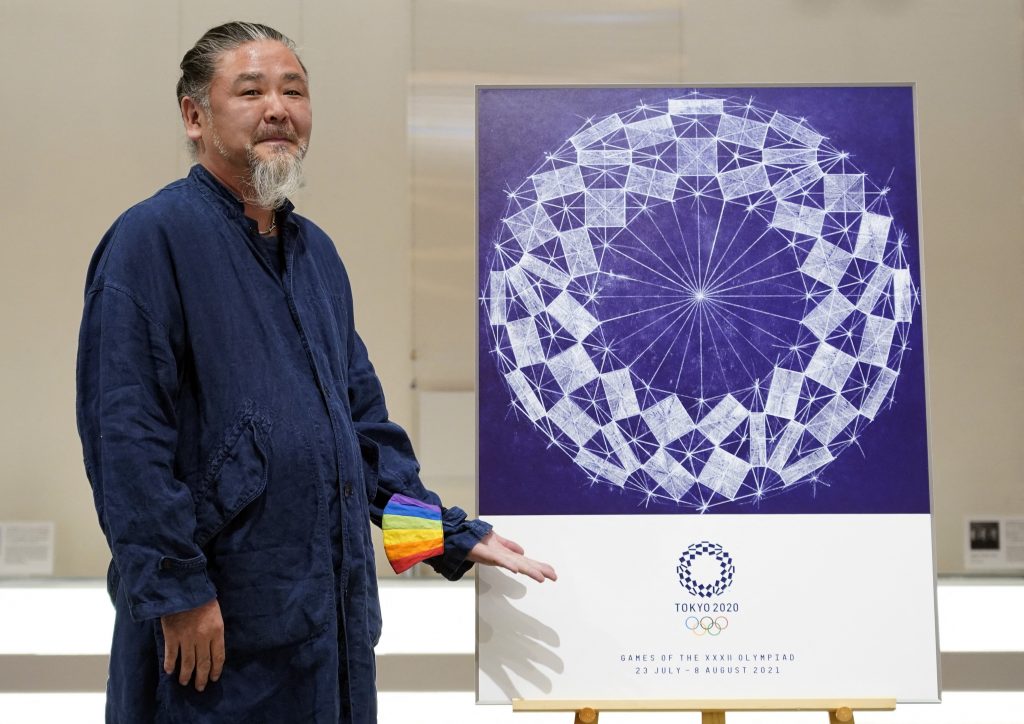
- ARAB NEWS
- 18 Jul 2025

TOKYO: The creator of the Tokyo Olympic and Paralympic Games emblems have strong hopes for the sporting events despite the challenges presented by the novel coronavirus crisis.
Asao Tokolo, 52, designed the emblems that were selected in the spring of 2016 from the 14,599 entries that were submitted to the Tokyo Games organizing committee. The “kumi ichimatsu mon” checkered pattern design combines 45 quadrangles of three different varieties to express “unity in diversity” and equality.
The Olympic emblem evokes the image of “individuals forming a circle” while the Paralympic emblem signifies the openness of the event and a raised arm in celebration.
The indigo blue color used against a white background was the color worn by townspeople in Japan’s Edo era (1603-1868) and by samurai warriors for the strength it expresses.
Tokolo began creating designs combining small shapes to “connect” people after he observed the divisions among people following the Sept. 11, 2001 terrorist attacks on the United States.
Despite his wish to connect people through the Olympics, the event took a dark turn amid the coronavirus crisis.
“Even the words ‘safe’ and ‘secure’ became difficult to use,” he said. “I have really mixed feelings.”
Although many people call for the Games to be canceled and the message of the event’s significance by the government and the organizing committee rings hollow, Tokolo said he still has hope for the power of athletes to realize his wish.
The great thing about top athletes is that they can be respected regardless of ideology, instantly captivating people,” he said. “Seeing them makes us want to do our best as well, so their existence itself is like a baton to the next generation.”
Tokolo said that the Olympic and Paralympic Games, which end soon after they start, are like cherry blossoms.
“They have the power to stop enemies from fighting as long as we can watch them,” he said.
The designer said that he is proud to have been in charge of designing the official art posters and the podiums for the Games.
“I think it is meaningful to tell the next generation that it was a difficult Olympics, even if we can’t say that it was a splendid one,” he added.
JIJI Press